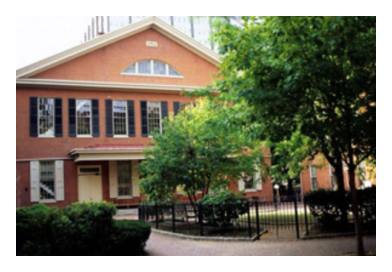Contact Information
1501 Cherry Street
Philadelphia, PA 19102
United States
Race Street Meeting House
Race Street Meeting House

The Race Street Meeting House in Philadelphia stands as a testament to the rich history of Quakerism in America and the pivotal role it played in shaping the nation's values of tolerance and social justice. Constructed in 1856, the Meeting House served as a gathering place for the Religious Society of Friends, commonly known as Quakers, who were instrumental in advocating for abolitionism and equality.
The roots of the Race Street Meeting House can be traced back to Philadelphia's early Quaker community, which was founded by William Penn in the late 17th century. Quakers, committed to principles of pacifism and equality, established numerous meeting houses throughout the city, with Race Street becoming one of the most prominent locations for Quaker worship and activism.
The Meeting House played a significant role in the abolitionist movement of the 19th century, hosting influential figures such as Lucretia Mott and Frederick Douglass. It served as a hub for organizing anti-slavery efforts, including the Underground Railroad, through which enslaved individuals sought freedom in the North.
In recognition of its historical significance, the Race Street Meeting House was designated as a National Historic Landmark in 2011. This designation acknowledges the Meeting House's enduring legacy as a symbol of Quaker values and its contributions to the fight for social justice in America. Today, the Race Street Meeting House continues to serve as a place of worship, education, and reflection, preserving its heritage for future generations to appreciate and learn from.